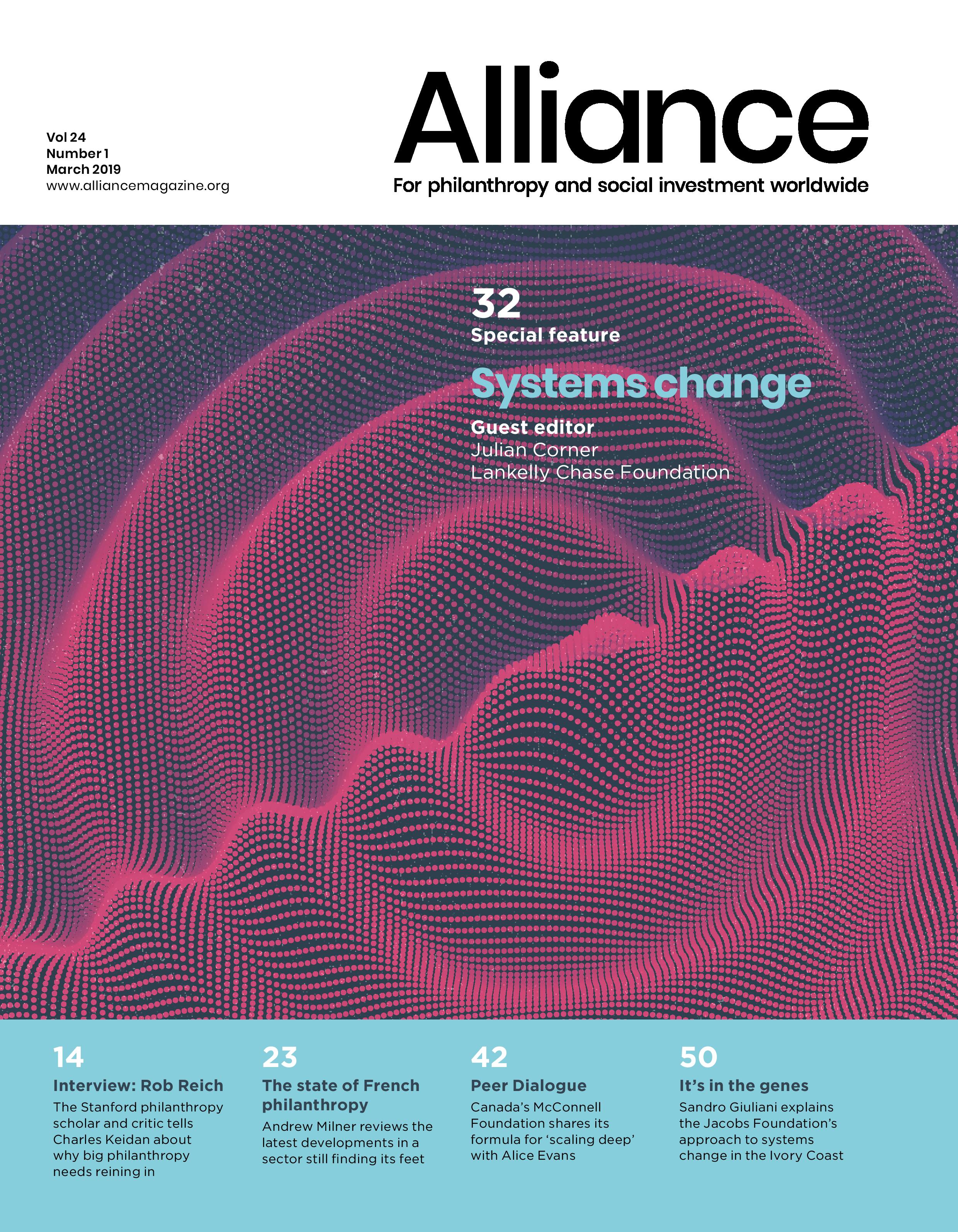How should funders understand and respond to the forces that create systems change?
Amidst Guatemala’s civil war, a small group of women in Santiago Sacatepéquez came together in 1988 to address chronic malnutrition and the lack of educational opportunities. A few years later, the Asociación Femenina para el Desarrollo de Sacatepéquez, or AFEDES, developed a robust microcredit and income-generating skills building programme.
Fast forward to June 2016, AFEDES members were among a thousand women gathering on the steps of the Guatemala Constitutional (Supreme) Court. They were there to support a case brought by the Movimiento Nacional de Tejedoras to hold the Guatemalan government responsible for preventing global fashion companies from stealing Mayan textile designs.
Giving money and getting out of the way is a radical departure from traditional philanthropy, where project budgets dictate most partnerships. When funders can assimilate and act upon this wisdom – that the people closest to problems have the most important insights about their solutions – systems change becomes clearer.
This small group ignited a nationwide movement, which is now about to set an international legal precedent for indigenous peoples’ collective intellectual property.
How can funders accompany more peoples’ journeys towards self-determination and collective power? As a long-time funder of AFEDES and other grassroots organisations and movements around the world, we offer three insights.
First, in addition to supporting them for the long haul, our role as the funders of AFEDES is to invest (without restrictions) in their vision and goals. Long-term social transformation presents many obstacles to our grantees’ work. Funders need not present more. Throughout our partnership with AFEDES, which began in 2005, the women changed course many times. They concluded that the oppression of women could not be solved by credit alone. They shifted their primary goal from increased income to Utz ‘K’aslemal (Buen Vivir, or good living) for their families, communities and the natural world. Making their ancestral wisdom the foundation of all that they do meant AFEDES’ analysis deepened and widened to include issues of indigeneity, food sovereignty and disability.
Thousand Currents stayed with AFEDES through strategy overhauls and leadership transitions. Giving money and getting out of the way is a radical departure from traditional philanthropy, where project budgets dictate most partnerships. When funders can assimilate and act upon this wisdom – that the people closest to problems have the most important insights about their solutions – systems change becomes clearer.
Thousand Currents has made mistakes, but an ever-deepening commitment to continual, reciprocal learning means our grantees have become our teachers.
Second, systems change is non-linear, often unpredictable, and requires efforts on many levels. This is why we consider our partners as part of movement ecosystems, which include and gather individual citizens, campaigners, formal and informal groups, policy analysts, civil society organisations, media makers, etc – taking coordinated steps.
Though it is not our role as funders to define what movements are, we’ve observed that they are most often characterised by a systemic analysis and a shared agenda to fundamentally change society’s status quo, and principled, collective, direct action to create strategic pressure.
As part of larger national, regional and international community-led movements, our partners build momentum in response to specific social conditions and are accountable to the communities that comprise them. They are focused not just on their communities’ needs, but on moving systems, structures and institutions towards justice and equity for all people.
Funders must recognise movements are made up of ideas and actions for social transformation that are fluid, complex, responsive and dynamic, which is what makes traditional project funding mechanisms so ill-fitted to systems change.
Finally, for a 30+ year-old organisation to shift its approach from funding short-term projects in the mid-1980s to movements, humility was and is required. Thousand Currents has made mistakes, but an ever-deepening commitment to continual, reciprocal learning means our grantees have become our teachers.
To deepen our own analysis, Thousand Currents builds diversified grantmaking portfolios that represent movement actors of many types and capacities, so that we can learn how to support movements without imposing our ideas on them.
Movements vary greatly around the world, as the context and the people determine the structure and strategies within each movement. Funders must recognise movements are made up of ideas and actions for social transformation that are fluid, complex, responsive and dynamic, which is what makes traditional project funding mechanisms so ill-fitted to systems change.
When it comes to moving with movements, funders don’t have to know everything. But they do have to be willing to change themselves.
Solomé Lemma is executive director of Thousand Currents and co-founder of Africans in the Diaspora.
Email: solome@thousandcurrents.org
Twitter: @innovateafrica








Comments (0)